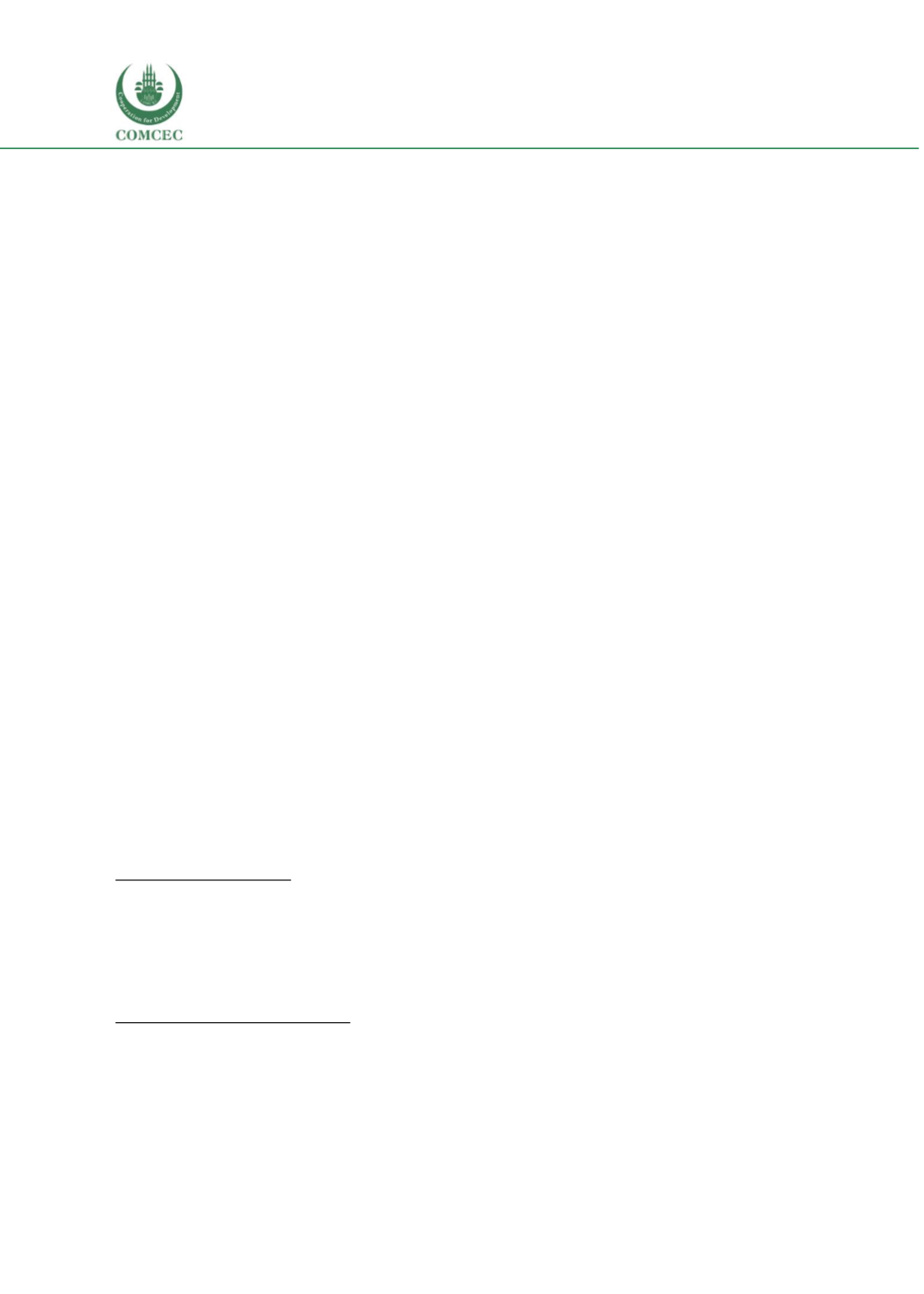

Education of Disadvantaged Children in OIC:
The Key to Escape from Poverty
124
system is structured so that the primary school cycle lasts 6 years, lower secondary lasts 4 years
and upper secondary 2 years. The Basic Compulsory Education cycle has a 10-year duration and
encompasses grades 1-10 (primary and lower secondary levels). 11
th
and 12
th
grade are free but
not compulsory and constitute the Upper Secondary cycle. This last cycle is divided into
comprehensive secondary education (academic and vocational) and applied secondary
337
. The
former is managed by the MoE and concludes with the General Secondary Education Certificate
(
Tawjihi
) in academic and vocational strands. Applied secondary education provides intensive
vocational training and apprenticeships, concludes with the award of a certificate (not the
Tawjihi
) and is managed by the Vocational Training Corporation.
Compulsory education is free for Jordanians and Syrians (Iraqis had their fees waived in 2008),
the curriculum is designed by the MoE and textbooks are produced and distributed by the MoE,
free of charge at the compulsory stage and with a small nominal fee at upper secondary level.
In Jordan, the United Nations Relief and Works Agency for Palestine Refugees in the Near East
(UNRWA) provides basic education free of charge to all Palestinian refugees, including some
vocational training courses. Over 118,500 students are enrolled in 174 UNRWA schools, most of
them running in double-shifts, and students in the fourth, eighth and tenth grades take national
quality-control tests in the core subjects – Arabic, English, science and maths
338
. School children
in UNRWA schools follow the host authorities’ curricula and textbooks i.e. the Jordanian
curriculum.
Trends in Access to Schooling
To assess trends in access to schooling in Jordan, this chapter relies mainly on primary data from
the Demographic and Health Survey (DHS). Where relevant, secondary data such as UIS/UNESCO
data, UNICEF reported EMIS/government data and UNICEF/UNHCR data on refugees are used. It
is important to note from the outset that these administrative and survey data do not always
coincide, a situation that is common inmany countries but particularly acute in Jordan in the wake
of the unprecedented refugee influx to the country and for all data prior to the 2015 Jordan
population census.
Gross Enrolment Rates
High Enrolment Rates and Gender Parity (UNESCO and Administrative data)
. In Jordan,
access to basic education has been a priority in all the country’s successive development plans. As
a matter of policy, the government has provided every village and community with 10 or more
school-going children with a school
339
. This has enabled children in poor and remote areas to gain
338
https://www.unrwa.org/activity/education-jordan339
http://www.kinghussein.gov.jo/resources3.html















